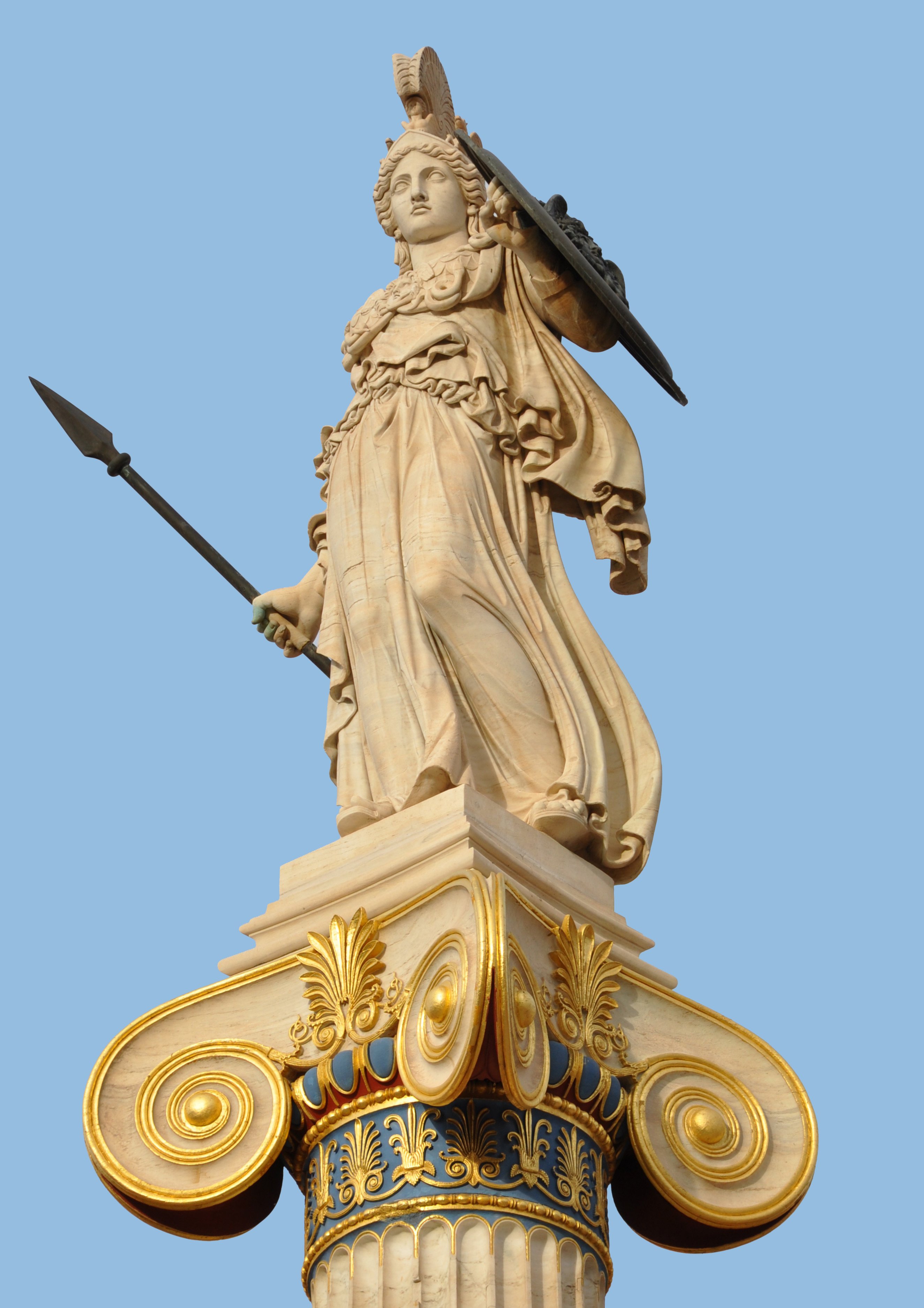
The statue of the goddess Athena Photo from Panepistimio in Athens
One of the most recognisable and famous Greek mythology statues is the Winged Victory of Samothrace, also known as the Nike of Samothrace . The statue is dated to c. 200 - 190 BC during the Hellenistic period of ancient Greece. It was discovered on the Greek island of Samothrace in 1863 and has been located in the Louvre Museum since 1884.
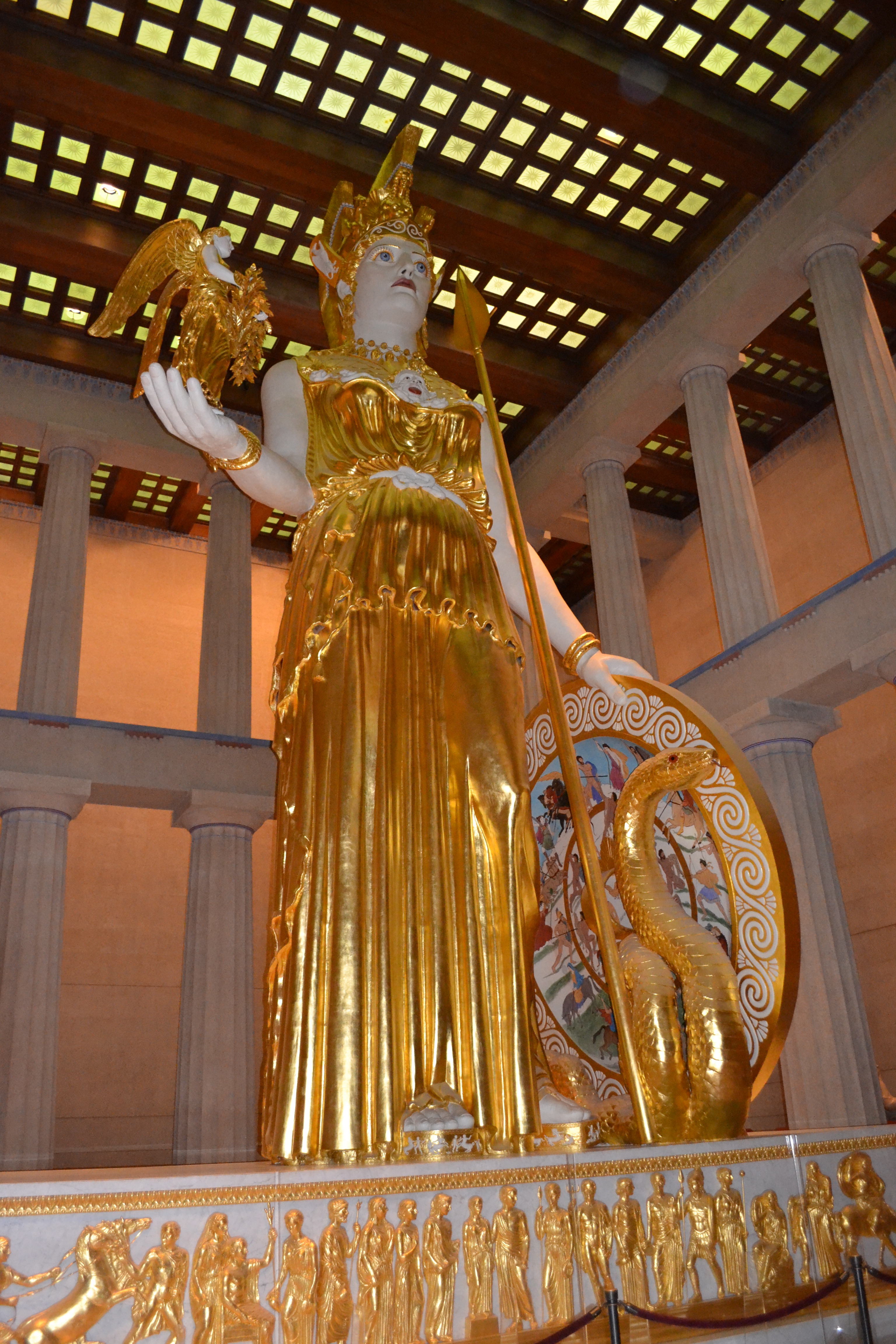
Greek mythology
Famous Greek Statues Statues are some of the most iconic parts of Ancient Greece and Greek Mythology. Crafted out of bronze, marble, limestone, and more, these works of art have stood the test of time and continue to provide a glimpse into the ancient world. Greeks used statues for a variety of reasons. Not only were they made […]
Information World Seven Wonders of the World Statue of Zeus
The Pergamon Altar This massive altar measures 35.64 meters wide and 35.4 meters deep. Made between 130 and 100 B.C, this piece is an altar to Zeus, the god of sky, lightning, and thunder. This statue differs from other works of art. Instead of depicting a single subject, it portrays a battle between the Giants and the Gods of Olympus.
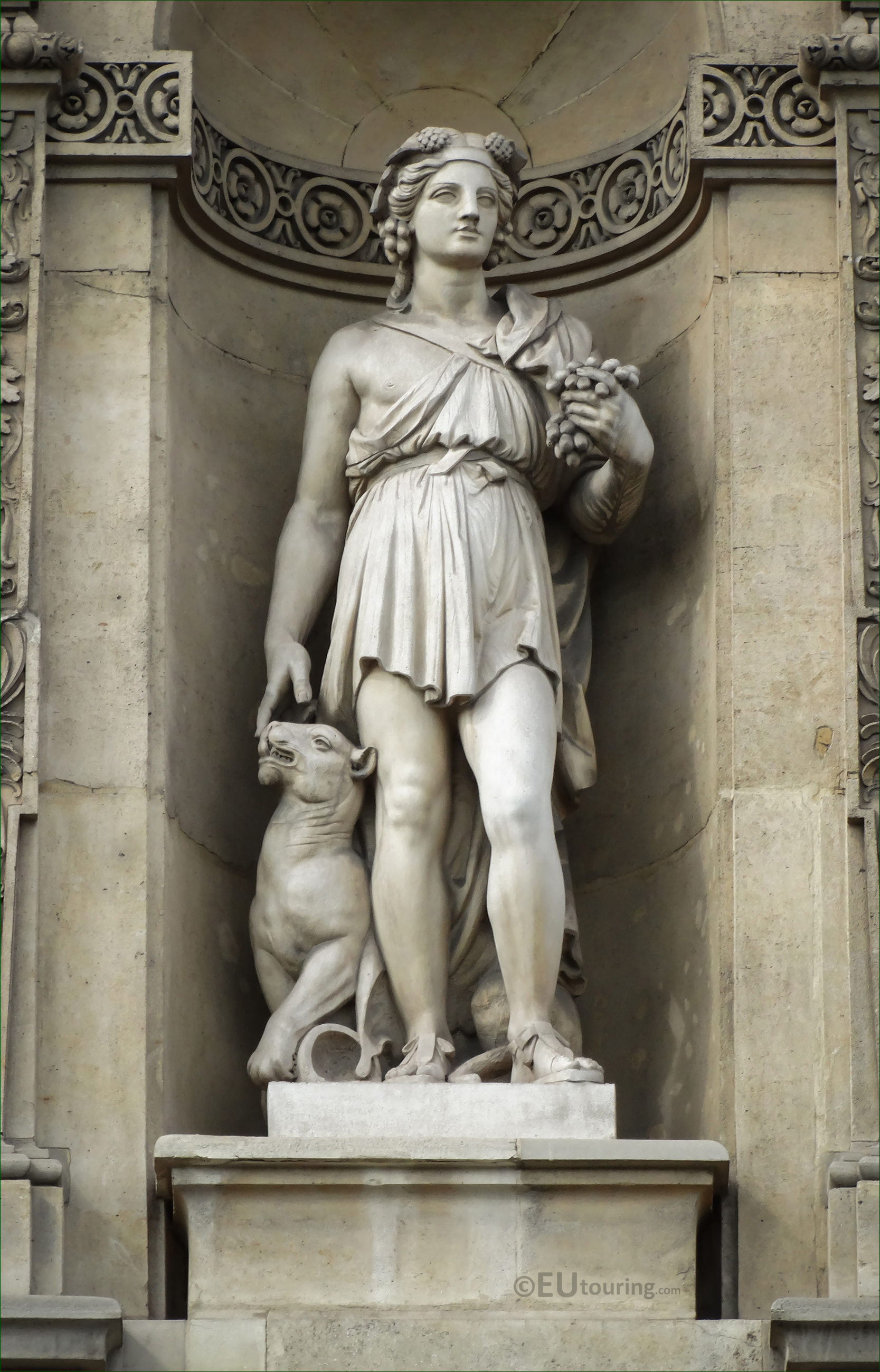
Photos of Roman God of Wine statue at Musee du Louvre Page 476
The sculpture of ancient Greece from 800 to 300 BCE took inspiration from Egyptian and Near Eastern monumental art, and evolved into a uniquely Greek vision of the art form. Greek artists captured the human form in a way never before seen where sculptors were particularly concerned with proportion, poise, and the idealised perfection of the.
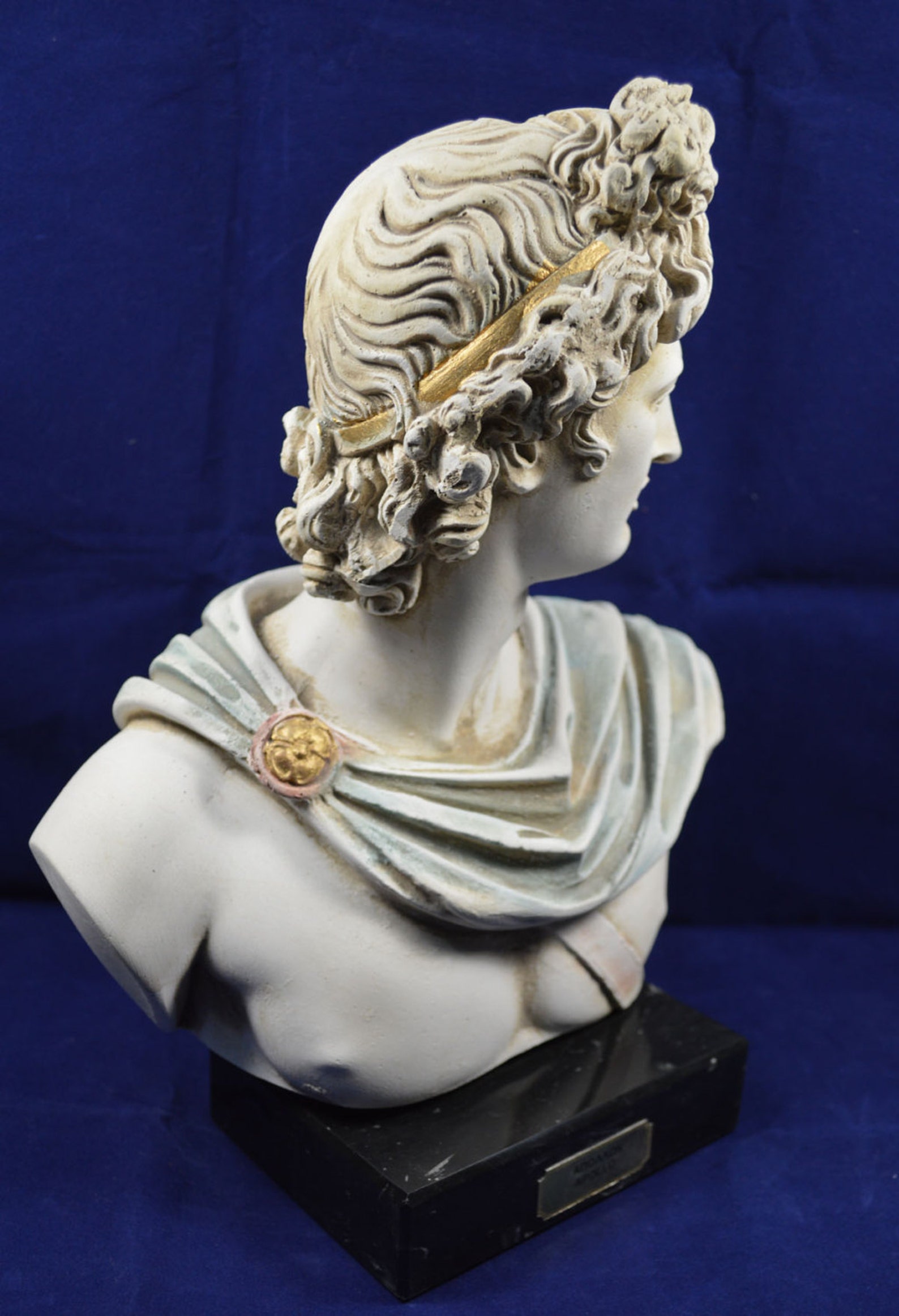
Apollo sculpture bust ancient Greek God of sun and poetry Etsy
Contemporary popular culture regularly presents ancient Greece as an exceptional place—from movies like Disney's Hercules and Clash of the Titans, to video games like Assassin's Creed: Odyssey and God of War, and books like the Percy Jackson series.These movies, artworks, and novels depict the mythological exploits of heroes and gods against a background of shining white marble sculpture.
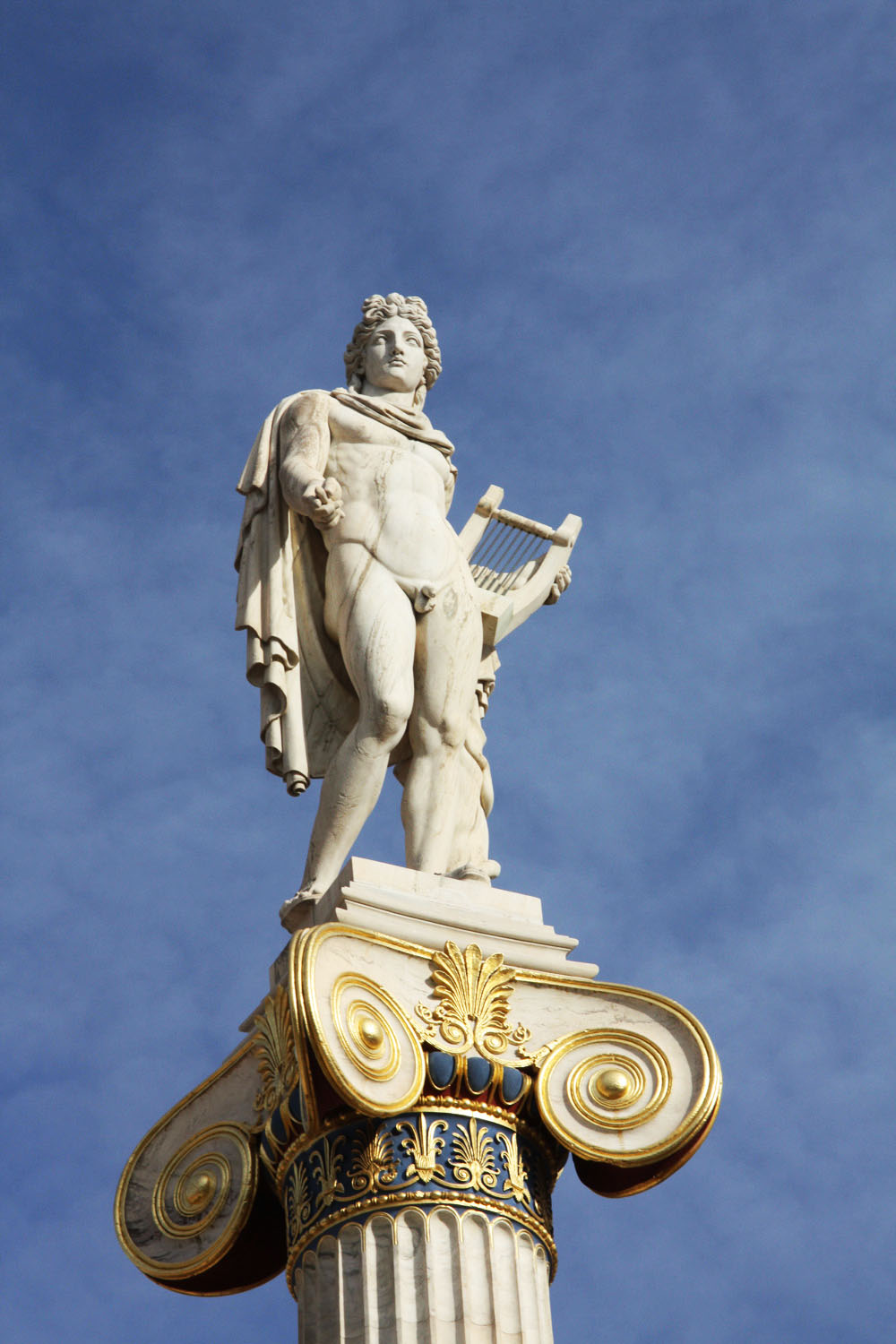
The Bitch is back The Greek God Apollo.
Colossus of Rhodes, colossal statue of the sun god Helios that stood in the ancient Greek city of Rhodes and was one of the Seven Wonders of the World. The sculptor Chares of Lyndus (another city on the island) created the statue, which commemorated the raising of Demetrius I Poliorcetes ' long siege (305 bce) of Rhodes.
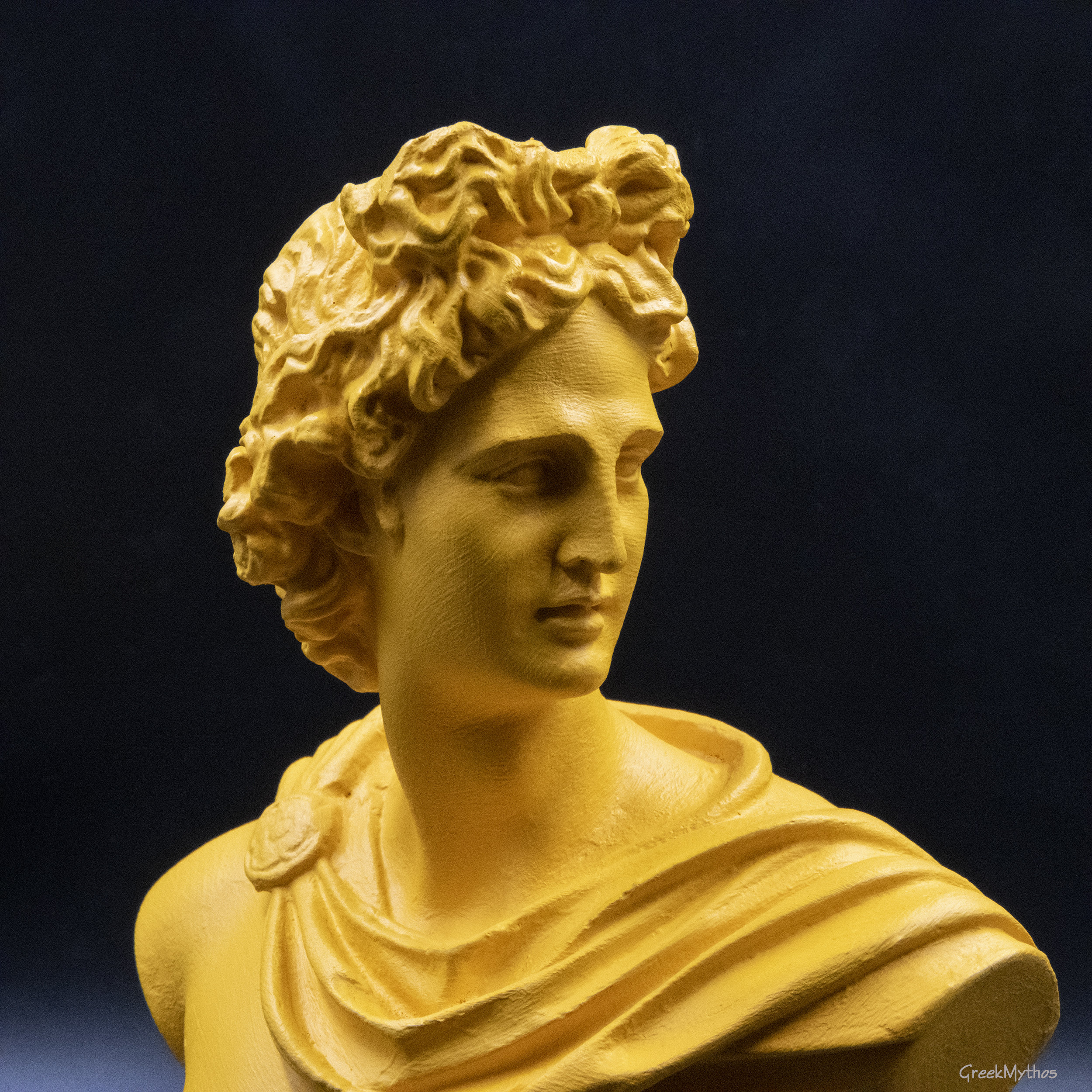
GreekRoman God Apollo Bust Statue, Apollo Belvedere Museum Replica
2,358 Greek Gods Statues Stock Photos, High-Res Pictures, and Images - Getty Images Images See all creative images Happy New Year New Year Paper Texture Family Abstract Background Martin Luther King Jr View more Popular Image Categories Family Business Holiday Technology Education Sports View more Videos Illustrations Vectors Music Images
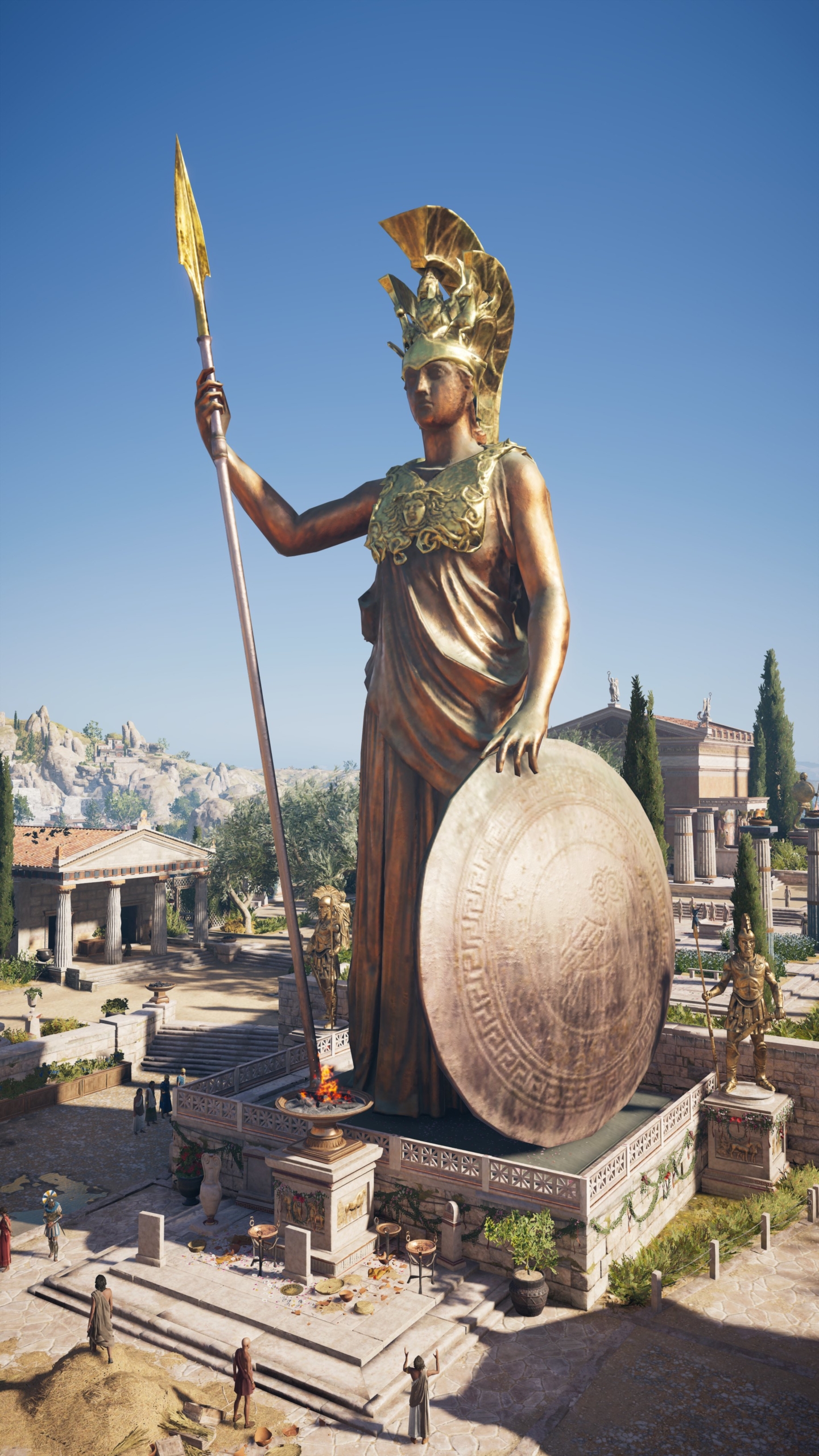
Ancient Greek Mythology Outdoor Lareg Life Size Statue of Athena
1. Atlas Statue - Rockefeller Center, New York, NY This statue featuring Titan god Atlas was constructed in 1937. It is made of bronze and depicts a strong Atlas holding up the earth over his shoulders. 2. Farnese Hercules - National Archaeological Museum, Naples, Italy
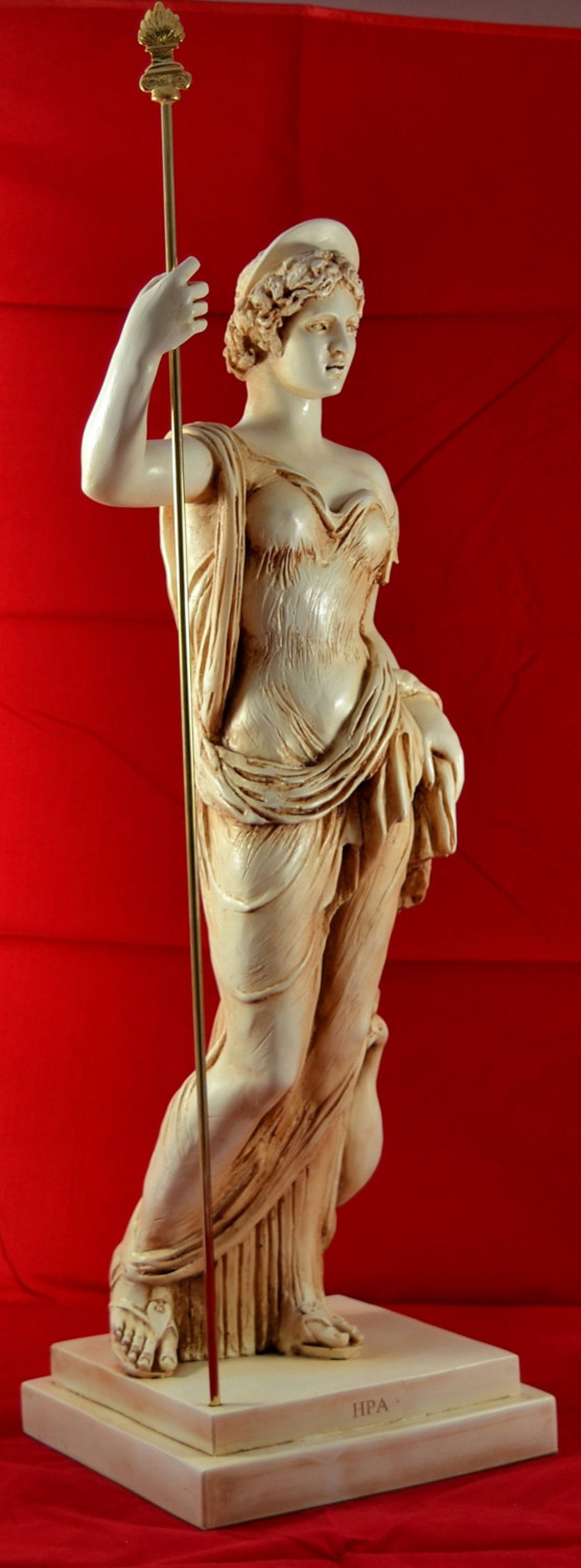
Greek Goddess Of Peace Artemis, Classic Greek goddess of the hunt
The History of the Collection. The National Archaeological Museum houses the largest and one of the most significant collections of sculpture of Greek antiquity worldwide, dating from the 7th century BC to the 5th century AD. The formation of the collection was initiated in 1829 with the foundation of the museum on Aegina, whereas later it.
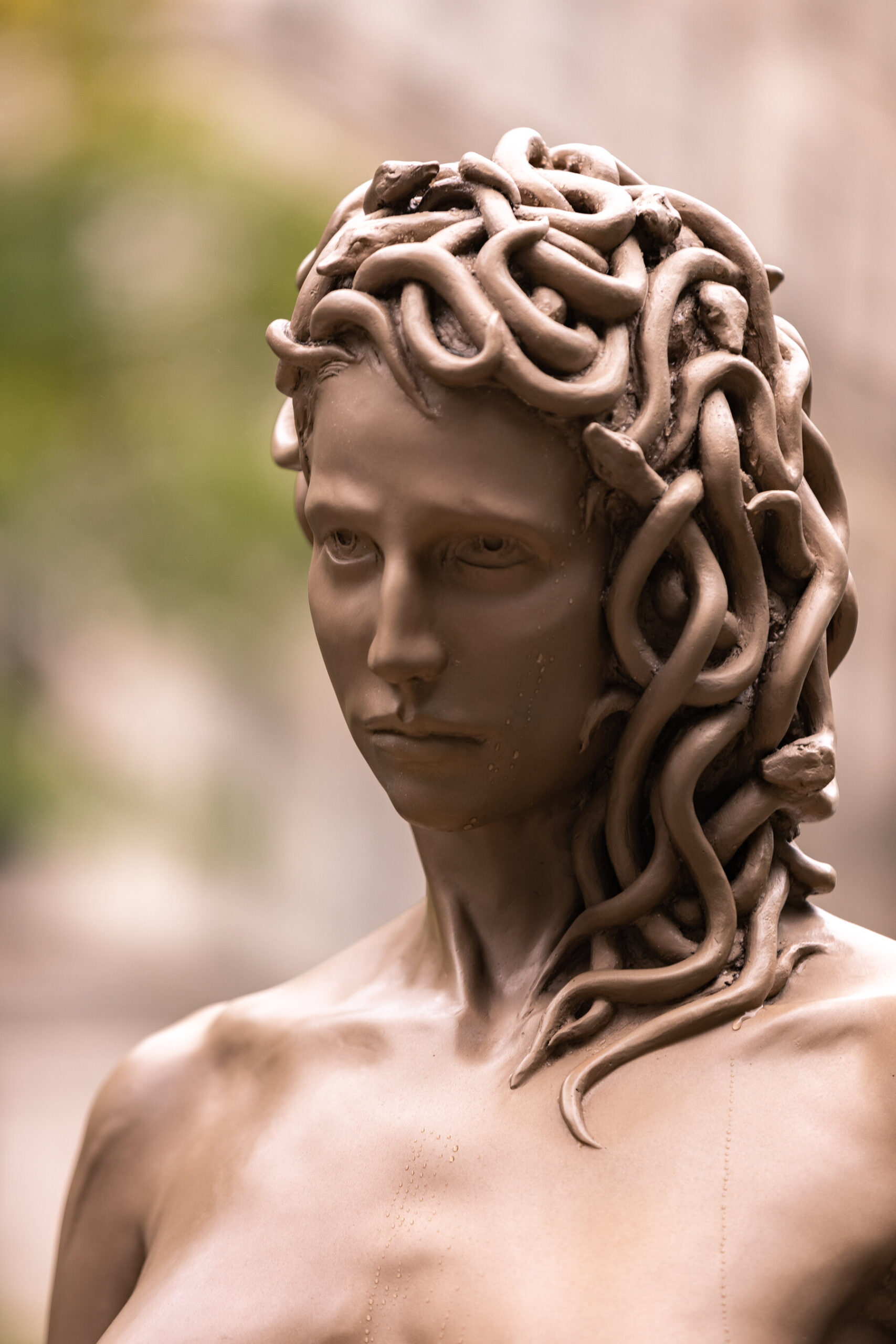
medusa greece mythology statue feminism Archives My TJ Now
The Lady of Auxerre was found in a storage vault in the Museum of Auxerre and was discovered by a Louvre curator named Maxime Collignon in 1907. While no one knew how the statue came to be there, many scholars concur that The Lady of Auxerre represents Persephone, who was the daughter of the mythological being Demeter.

Statues Louvre InexpensiveGardenStatues •STATUES• Roman sculpture
Ancient Greek sculpture Riders from the Parthenon Frieze, around 440 BC The sculpture of ancient Greece is the main surviving type of fine ancient Greek art as, with the exception of painted ancient Greek pottery, almost no ancient Greek painting survives.

Information about the Greek God Dionysus Ancient greek sculpture
The Parthenon. Built between 447 and 432 BCE, the Parthenon was dedicated to Athena, the patron deity of Athens, and contained a huge twelve metre high cult statue of the goddess made of wood, ivory, and a whopping 1,140 kilos of gold.Constructed in the golden age of Pericles, the massive temple measures around 31 x 70 metres and was a celebration of the Greek triumph over the invading armies.

Free Images monument, statue, art, temple, head, carving, hercules
Athena Parthenos Atlas Sculpture in New York Mercury (Hermes) riding Pegasus King Neptune Statue Nike Statue Icarus Sculpture Pegasus defeats a dragon. Pegasus Sculpture Hercules Sculpture Eternity-Poseidon Statue More Statues with Greek Mythology Themes Odysseus blinding the cyclops Polyphemus
.jpg?maxwidth=2085&maxheight=1950)
A GREEK BRONZE ZEUS KERAUNIOS
List of Greek mythological figures Eleusinian Mysteries Orphism Dionysian Mysteries Agalma Dithyramb Paean Orgion Hiera Orgas Hero Cult Oracle and Pythia Sacrifices and Offerings Holokaustos Libation Votive offering Animal Sacrifice Temples and holy sites Temple Temenos Eusebeia Meditation Euergetism Amphidromia Marriage Funeral Rites Thesmophoria

Ancient Muscular Greek God Oceanus Statue Famous Trevi Fountain Art for
1. Aphrodite Of Milos, The Louvre 2. The Colossus Of Rhodes, Rhodes Island 3. The Lady of Auxerre, The Louvre, Paris 4. Nike Of Samothraki - The Winged Victory of Samothraki, The Louvre 5. Kleobis and Biton, Delphi Archaeological Museum, Delphi 6. Ermis Of Praxiteles, Archaeological Museum of Olympia 7. Peplos Kore, Acropolis Museum, Athens 8.
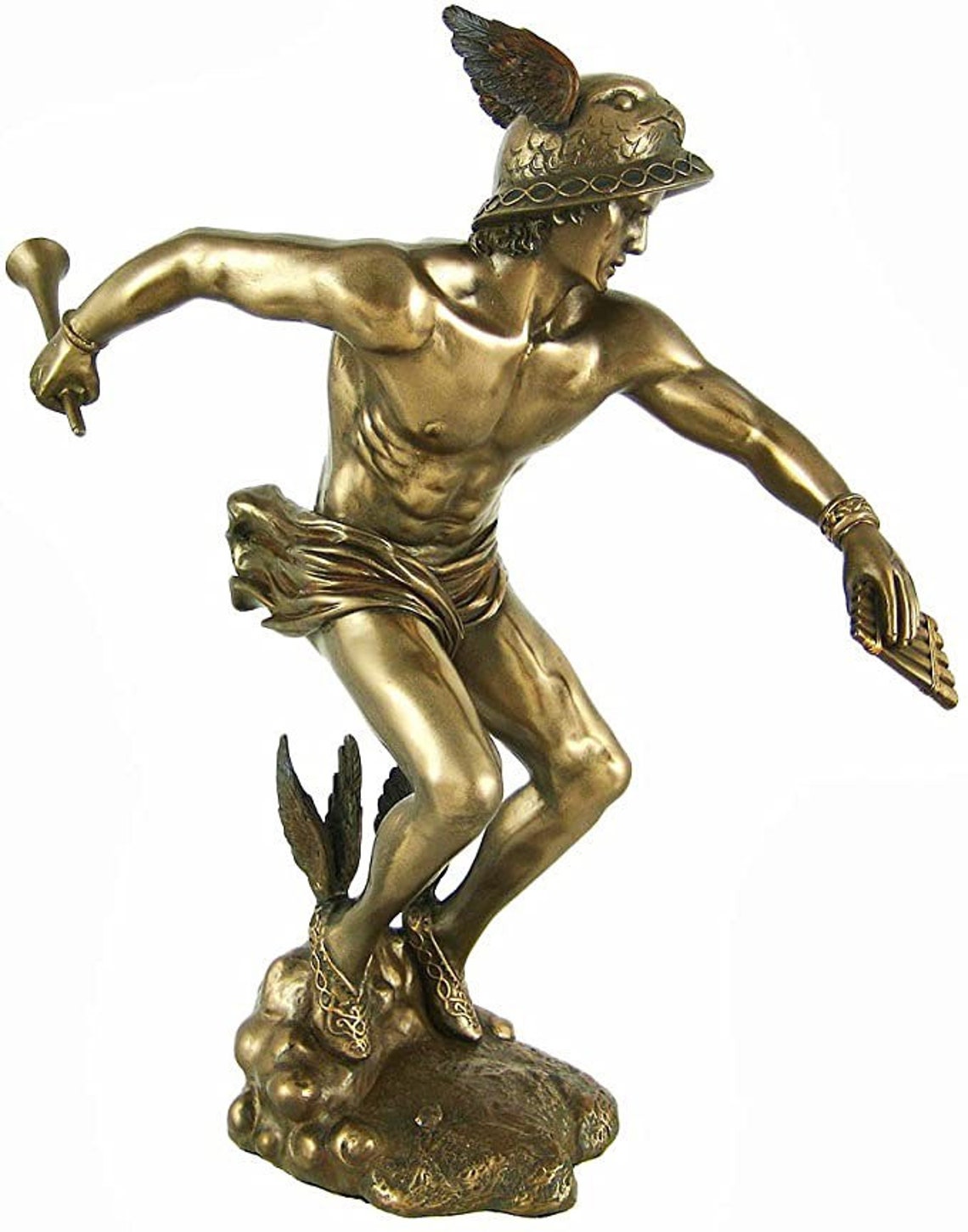
Greek God Hermes Bronzed Finish Statue 10 Inches Etsy
The Museum's collection of Greek and Roman art comprises more than 17,000 works ranging in date from the Neolithic period (ca. 4500 B.C.) to the time of the Roman emperor Constantine's conversion to Christianity in A.D. 312.